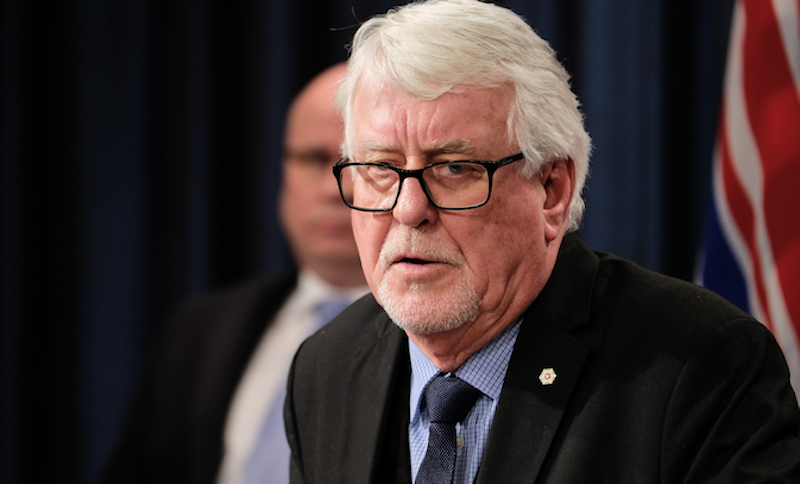"It makes eminent sense as a way to save lives in an epidemic."
That's Dr. Perry Kendall, a Canadian public health physician, who says heroin should be available to people who relapse while being treated with substitute drugs that are currently available in British Columbia.
Appointed as B.C.'s first provincial health officer on May 3, 1999, Kendall declared the overdose crisis to be a public health emergency in April 2016. He told Vancouver Is Awesome that it is "inexcusable and unethical" that a clean supply of heroin isn't available to people who use drugs.
"I think it is inexcusable that it is not more widely offered in Canada," he said. "I can think of no other evidence-based, effective treatment for a life-threatening condition that is withheld from individuals who could benefit from it.
"It is inexcusable and unethical."
The British Columbia Centre on Substance Use (BCCSU) has been working on a compassion club model for some time, explained Kendall. "It makes eminent sense as a way to save lives in an epidemic. It would also make sense in the context of a regulated supply of controlled substances."
The former health officer added that heroin should also be available to people who relapse to street opioids while currently on opioid maintenance therapy such as methadone and suboxone.
"It is a therapeutic opinion that is evidence-based, safe to prescribe and has been available in many European jurisdictions for over 30 years," he said.
Heroin, cocaine, and methamphetamine compassion clubs in Vancouver
Vancouver City Council unanimously approved a motion on Oct. 6 that endorses a federal exemption for a compassion club model to supply safer drugs to people who use drugs.
The motion, put forward by Councillor Jean Swanson, supports an application from the Drug User Liberation Front (DULF) and the Vancouver Area Network of Drug Users (VANDU) to the federal government for an exemption under s. 56(1) of the Controlled Drugs and Substances Act (CDSA) to allow them to operate a Safe Supply Fulfillment Centre and Cocaine, Heroin and Methamphetamine (CHM) Compassion Clubs in the city.
DULF co-founder Jeremy Kalicum told Vancouver Is Awesome that the organization wants to obtain drugs legally but hasn't been able to without the exemption from the federal government.
Fair Price Pharma, a Canadian non-profit pharma company, can supply DULF with injectable pharmaceutical heroin. The company is led by Kendall, who has been corresponding with the organization regularly.
For now, Fair Price Pharma can only supply heroin. Kalicum said that there are other companies that supply cocaine but DULF hasn't reached out to them yet.
Over the past year, DULF has distributed drugs at events aimed at demonstrating the life-saving potential of legalizing drugs. The drugs were handed out and were tested via "FTIR spectrometry and immunoassay" and were free of fentanyl, fentanyl analogues, benzodiazepines, and other harmful adulterants.
DULF underscores that drug user groups would have to comply with minimum safety and screening standards to operate compassion clubs. Further, the organization would also work with local researchers on a rigorous evaluation of the program.
In the past 25 years, more than 12,632 British Columbians have died of illicit drug overdoses. That’s equal to the population of the city of Terrace.
Since the 2016 emergency declaration, some 7,000 have died.
By January, an average of 5.3 people were dying daily.
B.C.'s chief coroner Lisa Lapointe said overdose is the fourth highest cause of death in the province with the average age of death being 43.
With files from Jeremy Hainsworth.



